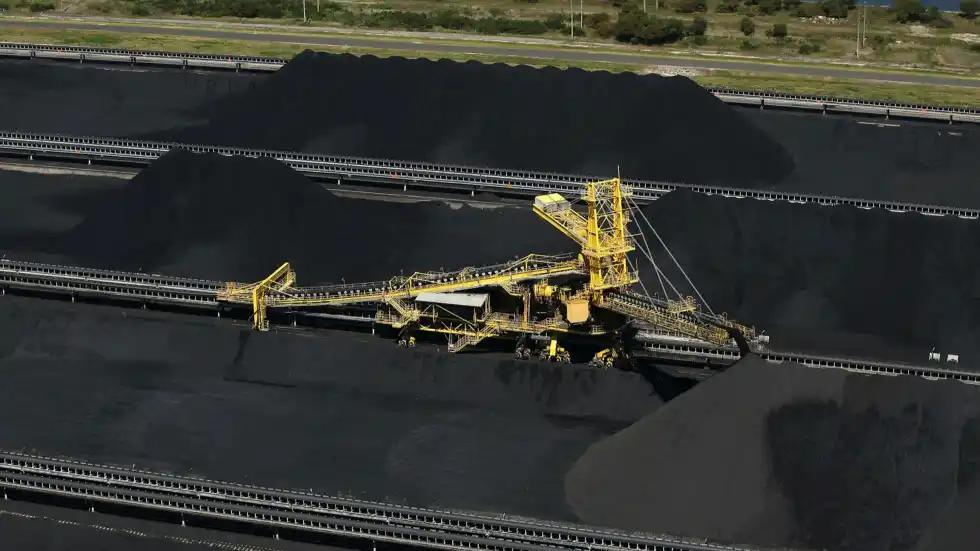Glencore remains one of the biggest coal producers, unlike many of its rivals that have cut their coal-mining activities amid criticism of the fuel’s carbon emissions ©️ Bloomberg
Glencore’s profits more than doubled to a record in the first half of the year, cementing the group’s status as one of the biggest winners from the turmoil in commodity markets unleashed by the war in Ukraine.
A strong performance at its coal business, which Glencore has stuck with even as rivals retreat from the controversial fuel, accounted for almost half of the FTSE 100 group’s record $18.9bn in adjusted earnings.
Its profits for the first six months were up 119 per cent from a year earlier, beating its previous half-year record and exceeding the $18.4bn expected by analysts.
As a result, Glencore laid out plans to boost returns to investors, announcing a $1.45bn special dividend and a new $3bn share buyback programme that take total shareholder returns for the year to $8.5bn.
The bumper profits will increase focus on its coal division, which generated earnings of $8.9bn, more than the whole company made in the first six months of last year.
Shares in Glencore were up 1.5 per cent in London on Thursday, taking their gain for the year to 20 per cent.
The increased payout will mean another payday for several former Glencore executives, who remain among the company’s biggest shareholders. Former chief executive Ivan Glasenberg still owns 9 per cent of the company and is set to take about $133mn from the special dividend, according to calculations by the Financial Times.
Unlike many of its rivals, which have cut their coal-mining activities amid criticism of the carbon emissions generated by the fuel, Glencore remains one of the biggest producers.
The Swiss-headquartered group argues coal will be needed during the energy transition in many parts of the world and that it is better for the company to run down production over the next 30 years than to divest.
“We are not a coal company, we are a decarbonising transition company,” chief executive Gary Nagle said, pointing to the “future-facing metals” Glencore mines, specifically copper, cobalt, nickel and zinc, which will be required for the batteries, transmission networks and other infrastructure needed to build a lower-carbon energy system.
“In the meantime, as the world transitions, reliable baseload energy is required for the world and we provide that through both our coal business . . . and our energy trading business,” he added.
Coal was having “its day in the sun”, chief financial officer Steven Kalmin said, noting that the coal division generated only $900mn in the first half of last year and that he did not expect such high prices for the fuel to continue.
Glencore’s marketing business, which sets the company apart from its pure mining peers, also outperformed, generating earnings of $3.7bn, exceeding the $2.2bn to $3.2bn it had previously expected to make across the entire year.
In a sign of the volatility in commodity markets this year, Glencore said its working capital requirements had increased by $8.7bn, with $5bn invested in its marketing business to enable its traders to continue to work amid “materially higher” oil, gas and coal prices.
Higher interest rates, higher inflation and economic slowdown were likely to reduce earnings in the second half of the year, Nagle said, though he argued that the long-term commodity outlook remained positive.
“We believe that Chinese recovery will come and will be very strong,” he said. “The other area that we can’t ignore is decarbonisation. This is something that is happening, will happen and must happen and that has a huge draw or demand for increased use of commodities, particularly the commodities that we have.”
The higher working capital requirements included $300mn that Glencore has paid so far to resolve investigations in the US, UK and Brazil into multiple counts of bribery and market manipulation between 2007 and 2018. Glencore pleaded guilty to the charges earlier this year and expected the total penalties to reach $1.5bn.
Source : Financial Times

